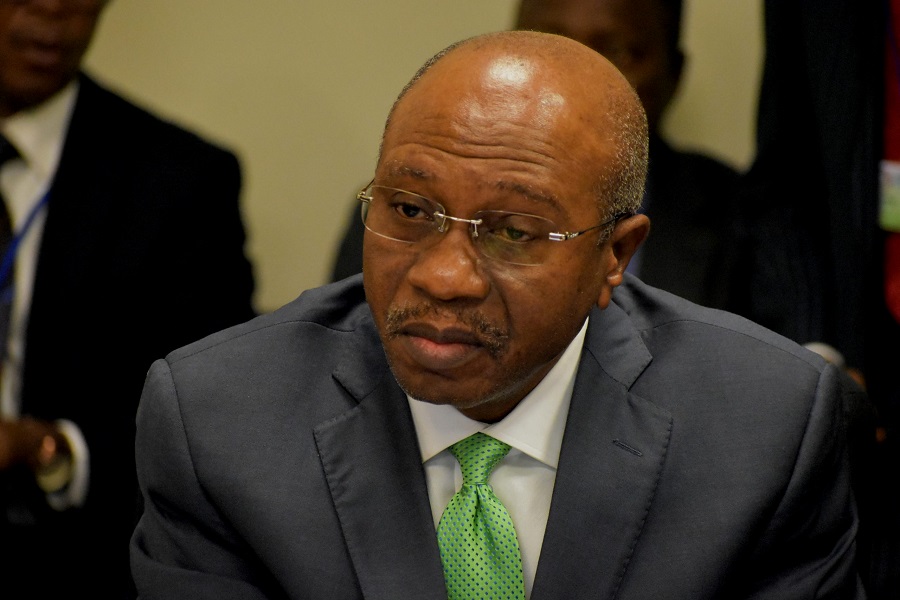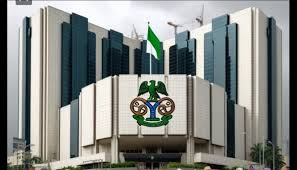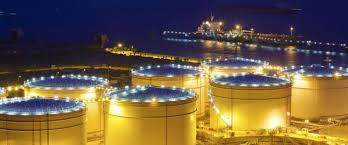Business
2022, Year Of Steep Naira Depreciation – CBN

The Naira suffered steep depreciation in 2022 with the national currency losing between at least 11 per cent and 23 per cent.
Analysis of the exchange rates’ movements showed that the naira lost 11 per cent of its value at the official market and was worse at the parallel market, where it lost not less than 23 per cent of its value.
The local currency, which started the year at N416 per dollar in January 2022 at the Investors and Exporters (I & E) Window foreign exchange market, closed the year at N461.50 per dollar, translating to about 11 per cent year on year depreciation.
At the black market, where most independent users source and trade forex, the naira closed at N735 per dollar, compared with its 2022’s opening rate of N565 per dollar.
Most analysts blamed Central Bank of Nigeria (CBN)’s policies for the currency woes as forex scarcity and speculation sustained a year-long volatility, amidst rising inflation.
The CBN had in the last one year taken major steps to stabilize the naira. The apex bank introduced the naira-for-dollar policy allowing foreign currency recipients to earn N5 for every dollar sent.
The CBN had promised that the new policy would provide Nigerians in the Diaspora with cheaper and more convenient ways of sending remittances to the country.
CBN Governor, Godwin Emefiele said the policy implementation would increase the transparency of remittance inflows and reduce rent-seeking activities.
Managing Director, Financial Derivatives Company Limited, Bismarck Rewane, attributed the naira’s continued decline to heightened forex supply shortage, demand pressure and rationing. He said naira rates convergence would require adoption of a full floating exchange rate system determined by the forces of demand and supply.
In the same vein, the International Monetary Fund (IMF) said exchange rate rigidities have constrained the economy’s ability to absorb external shocks.
The IMF insisted that restrictions on access to foreign exchange for certain categories of goods, and multiple exchange rates create distortions in both private and public sectors decision making. They discourage long-term investment, encourage smuggling and provide avenues for corruption.
Moving forward, the Fund suggested removal of foreign exchange restrictions, and a full exchange rate unification, in line with the authorities’ Economic Recovery and Growth Plan (ERGP), will help keep the parallel market premium low in a more sustained manner.
It, therefore, called for unified exchange rate for the naira to promote growth and attractive foreign capital.
According to the IMF, foreign exchange backlog and shortages are intensifying Balance of Payment (BoP) pressures insisting that exchange rate unification was imperative to reduce BoP risks. It said that fiscal deficit will stay elevated in the medium term, while additional domestic revenue mobilisation is required to reduce fiscal risks.
Global Chief Economist at Renaissance Capital (RenCap), Charles Robertson, said Nigeria is in a difficult position and needs to increase its dollar earnings and other revenue to support the naira.
Business
NCDMB, Partners Sweetcrude On Inaugural Nigerian Content Awards

The Nigerian Content Development and Monitoring Board (NCDMB), in partnership with a firm, Sweetcrude Ltd., has announced detailed selection criteria for the inaugural “Champions of Nigerian Content Awards”, designed to honor outstanding contributions to local content development in Nigeria’s oil and gas sector.
The Tide learnt that the event, scheduled to hold 21st May, 2025, at the NCDMB’S content tower headquarters in Yenagoa, capital of Bayelsa State, will recognize individuals and organizations that have demonstrated exceptional commitment to advancing Nigerian Content in 2024.
The Tide further gathered that the ceremony will coincide with the Nigerian Oil and Gas Opportunity Fair (NOGOF), which promises to spotlighting industry excellence and contributions to national economic transformation.
A statement by the Board’s Directorate of Corporate Communications and Zonal Coordination says the event has 12 Award Categories, which include, “Nigerian Content Icon of the Year”, “Nigerian Content Lifetime Achievement Award”, “Nigerian Content International Upstream Operator of the year”, and the “Nigerian Content Independent Upstream Operator of the year”.
Others are, “Nigerian Content Midstream Operator of the year”, “Nigerian Content Downstream Operator of the year”, “Nigerian Content International Service Company of the year”, Nigerian Content Indigenous Service Company of the year”, and the “Nigerian Content Innovator of the year”.
Also included are, “Nigerian Content Financial Services Provider of the year”, “Nigerian Content Media Organization of the year”, and “Women in Leadership Award for Promoting Gender Equality and Empowerment”.
According to the NCDMB, the criteria for oil and gas operators will include key and empirical benchmarks such as Production output for crude oil and gas volumes, Compliance with Nigerian Content Plans (NCPs) and Nigerian Content Compliance Certificates (NCCCs).
Other criteria are adherence to NOGICD Act reporting requirements, such as submission of Nigerian Content Performance Reports and Employment & Training Plans.
The Board’s statement added that similar criteria will apply to financial institutions, media organizations, and individuals, ensuring a transparent and merit-based selection process.
“Winners for the Nigerian Content Icon of the Year, Innovator of the Year, and Women in Leadership Award will also be selected based on measurable performance indicators.
“The Advisory Committee of Industry Titans will Oversee the process to uphold the prestige of awards. The Committee consist of distinguished experts set up to oversee nominations and validate winners”, the NCDMB said.
Members of the committee, according to the Board, include: Pioneer Executive Secretary of the NCDMB, Dr. Ernest Nwapa; Secretary-General, African Petroleum Producers Organization, Dr. Omar Farouk; and former Zonal Operations Controller, DPR, Mr. Woke Akinyosoye.
The Statement quoted the Executive Secretary, NCDMB, Engr. Felix Omatsola Ogbe, as emphasizing that the awards aim to becoming the oil and gas sector’s equivalent of the Oscars, celebrating genuine impact rather than mere participation.
“This recognition is reserved for those who have gone beyond compliance to drive tangible growth in Nigerian Content.
“With a focus on credibility, compliance, and measurable impact, the Champions of Nigerian Content Awards is poised to set a new standard for excellence in Nigeria’s energy sector”, the NCDMB Executive Scribe said.
By: Ariwera Ibibo-Howells, Yenagoa
Business
Nigeria’s Debt Servicing Gulped N696bn In Jan – CBN

Nigeria’s apex Banking institution, Central Bank of Nigeria (CBN), has declared that Federal Government’s debt servicing increased to N696billion in January 2025.
The CBN’s recently published Economic Report revealed a precarious fiscal position, which worsened in January 2025 as debt servicing obligations exceeded total retained revenue by a wide margin.
According to the report, the Federal Government’s debt servicing obligations for the month stood at N696.27bn, while total retained revenue amounted to only N483.47bn, indicating that debt service alone consumed about 144 per cent of all government earnings.
This development highlights the growing debt burden and dwindling fiscal space facing Africa’s largest economy.
According to the report, despite slight improvements in some revenue categories, the retained earnings were grossly inadequate to cover obligatory debt repayments, exposing the government’s continued reliance on borrowing to meet basic obligations.
The report further revealed that retained revenue in January 2025 only recorded a marginal 0.89 per cent increase when compared with the N479.21bn generated in the corresponding month of 2024.
”FGN retained revenue declined in the review period, owing largely to lower receipts from Federal Government Independent Revenue and FGN’s share of exchange gain.
“At N0.48tn, provisional FGN retained revenue was 69.19 and 70.40 per cent below the levels recorded in the preceding period and monthly target, respectively”, it revealed.
While this points to stagnation rather than growth, the marginal rise was wiped out by the overwhelming debt service obligations.
The retained revenue components showed that the Federation Account contributed N167.69bn, while the VAT Pool Account delivered N90.73bn.
By: Corlins Walter
Business
Wage Award: FG Plans 5 Months Arrears Payment

The Federal Government has announced plans to commence the payment of the outstanding N35,000 wage award arrears owed workers in the Federal Civil Service.
A statement issued by the Office of the Accountant-General of the Federation (AGF), which was signed by the Director of Press and Public Relations, Bawa Mokwa, said the outstanding arrears will be paid in instalments, with workers set to receive N35,000 per month for five months.
It clarified that the first tranche of the wage award arrears would be released immediately after the April salary payment.
“The wage award arrears was not paid with the April 2025 salary; it will come immediately after the salary is paid”, the statement read.
The Federal Government had earlier disbursed wage awards to federal workers for five months as part of efforts to cushion the impact of economic reforms. However, five months’ arrears remained unpaid.
The AGF office further reiterated the government’s commitment to fully implementing all policies and agreements relating to staff remuneration and welfare, noting that such efforts were geared towards enhancing productivity and operational efficiency across ministries, departments, and agencies.
The N35,000 wage award was introduced in 2023 as a palliative measure to support workers following the removal of the petrol subsidy and other economic adjustments.
In January this year, the Federal Government assured workers that it would clear the arrears of the N35,000 wage award, just as it also said the government had resumed the payment of the wage award.
The government also reiterated its commitment to addressing issues in the National Minimum Wage agreement reached with the Organised Labour in 2023.
The Minister of Labour and Employment, Nkeiruka Onyejeocha, had disclosed the government’s commitment towards implementing agreements with trade unions during separate meetings with the leadership of the Trade Union Congress and Congress of University Academics, in Abuja.
The Nigeria Labour Congress had criticised the Federal Government over the delay in the payment of the minimum wage for certain workers in the federal civil service.
Also, the Federal Government had earlier blamed the delay in payment on the prolonged approval of the 2025 budget.
By: Corlins Walter
-

 News17 hours ago
News17 hours agoAdministrator Cautions Council Workers Against Partisanship
-

 Sports23 hours ago
Sports23 hours agoBrentford Dreaming Of Europe
-

 Politics17 hours ago
Politics17 hours agoWhy There’s Change In Governance Structure In Rivers – Solad
-

 Sports23 hours ago
Sports23 hours agoWorld Relays: Chinese Embassy replies ‘inconsistent’ AFN
-

 Oil & Energy17 hours ago
Oil & Energy17 hours agoTight Now, Loose Later: Oil Futures Flash Warning
-

 News23 hours ago
News23 hours ago15 Pipeline Vandals Convicted In N’Delta -Ribadu
-

 News17 hours ago
News17 hours agoHYPREP Solicits Regulators, Asset Owners’ Support
-

 Niger Delta23 hours ago
Niger Delta23 hours agoC’ River Repeals Essential Drug Programme Law 2002

